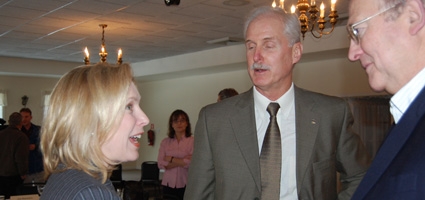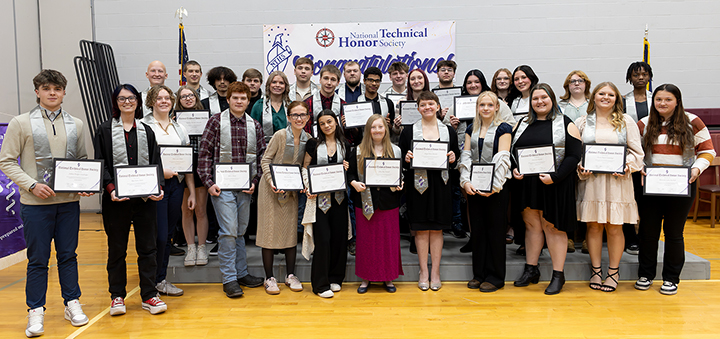Gillibrand visits Chenango County
GREENE – Healthcare, jobs, Route 12 and natural gas exploration were among the top concerns raised by local business and elected leaders as they met with Senator Kirsten Gillibrand on Friday, during the New York Democrat’s first visit to Chenango County since being appointed to fill the senate position last year.
The stop was one of four that day for Gillibrand, who was wrapping up her first tour of New York’s 62 counties since taking office.
Approximately 25 elected officials and representatives from area businesses attended the event, which was co-hosted by Commerce Chenango and held at Baron’s Inn in Greene.
The senator opened the discussion by providing those in attendance with a number of resource guides prepared by her office, to assist New Yorkers in accessing grant programs and other government funding sources.
“For every dollar we send to Washington, we only get 79 cents back,” she said. “We have to keep fighting for our fair share.”
Gillibrand said her focus right now is on jobs, improving access to capital for businesses, healthcare, energy and agriculture.
“We are working on a jobs bill,” she explained, citing statistics which indicate that in some rural areas of New York unemployment rates are topping 15 percent, well above the national average of 10 percent.
One of the items she is supporting is a tax credit for businesses who add jobs, or increase the hours of existing employees.








Comments